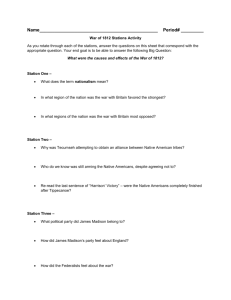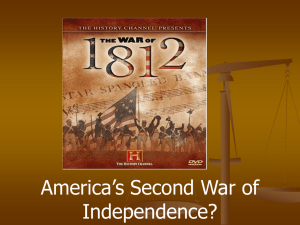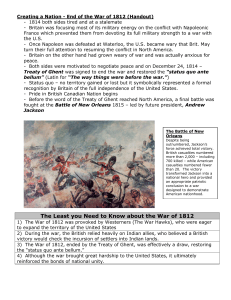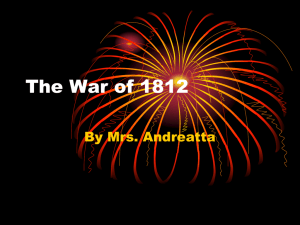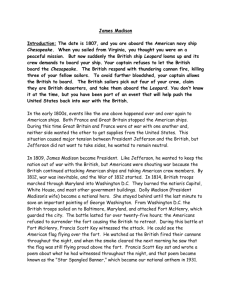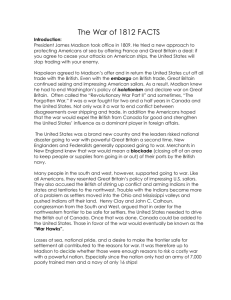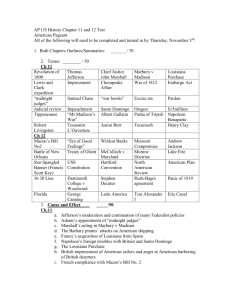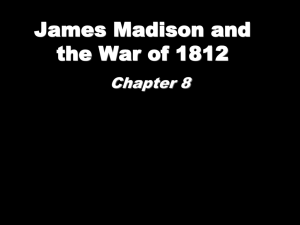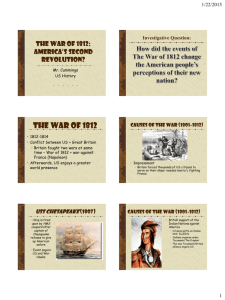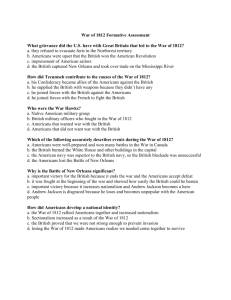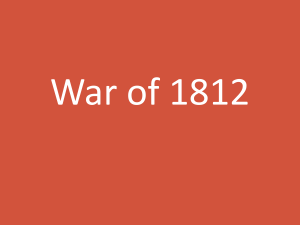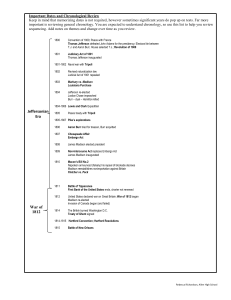Name
advertisement
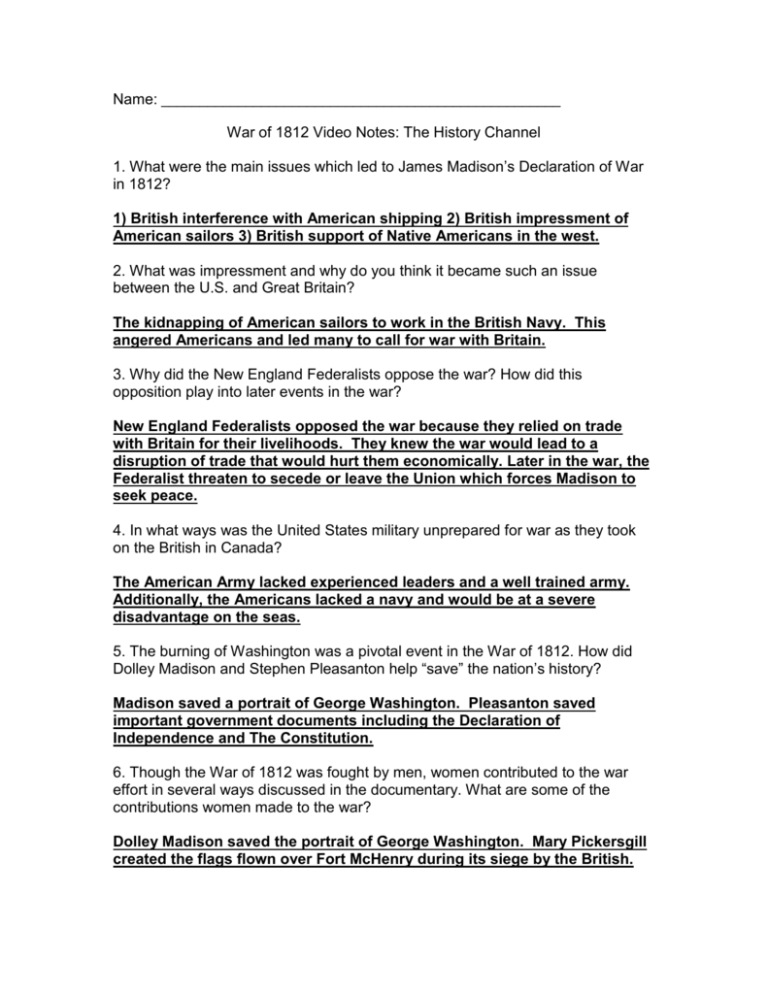
Name: ____________________________________________________ War of 1812 Video Notes: The History Channel 1. What were the main issues which led to James Madison’s Declaration of War in 1812? 1) British interference with American shipping 2) British impressment of American sailors 3) British support of Native Americans in the west. 2. What was impressment and why do you think it became such an issue between the U.S. and Great Britain? The kidnapping of American sailors to work in the British Navy. This angered Americans and led many to call for war with Britain. 3. Why did the New England Federalists oppose the war? How did this opposition play into later events in the war? New England Federalists opposed the war because they relied on trade with Britain for their livelihoods. They knew the war would lead to a disruption of trade that would hurt them economically. Later in the war, the Federalist threaten to secede or leave the Union which forces Madison to seek peace. 4. In what ways was the United States military unprepared for war as they took on the British in Canada? The American Army lacked experienced leaders and a well trained army. Additionally, the Americans lacked a navy and would be at a severe disadvantage on the seas. 5. The burning of Washington was a pivotal event in the War of 1812. How did Dolley Madison and Stephen Pleasanton help “save” the nation’s history? Madison saved a portrait of George Washington. Pleasanton saved important government documents including the Declaration of Independence and The Constitution. 6. Though the War of 1812 was fought by men, women contributed to the war effort in several ways discussed in the documentary. What are some of the contributions women made to the war? Dolley Madison saved the portrait of George Washington. Mary Pickersgill created the flags flown over Fort McHenry during its siege by the British. 7. Why was the death of Robert Ross such a critical loss for the British? He was their strongest and most capable leader. Without him, the British soldiers were less organized and less effective. 8. What did the flag at Fort McHenry symbolize to Francis Scott Key? Were you surprised by the United States’ victory? The flag symbolized independence and represented the great struggle the Americans made to defend their city. He believed such citizens deserved a song in their honor. 9. The Treaty of Ghent was brokered in 1814, yet the war went on. What miscommunication led to the extension of the war to New Orleans? Although the peace treaty was signed in December of 1814, word didn’t get to the Americans or British immediately. As a result, the Battle of New Orleans was fought even though the war was officially over. 10. What kind of methods did General Andrew Jackson use to fortify New Orleans in the military battle against the British? Jackson organized a diverse group of soldiers. They built fortifications around New Orleans. They put the city in lockdown. Jackson makes his men attack and ambush the British. 11. Who do you think were the heroes of the War of 1812? Possible list could include: a) President Madison b) Dolley Madison c) Stephen Pleasanton d) Andrew Jackson e) General Armistead (Fort McHenry); among others. 12. What do you think the long-term ramifications of the war were for the United States and for the British? It forced Britain to recognize American independence once and for all. It caused America to industrialize and become more self reliant. It also broke Native American resistance and led to greater American patriotism. 13. Why do you think the War of 1812 has been referred to as “America’s Forgotten War”? Why should it be studied and remembered today? It gets lost due to the greater importance of both the American Revolution and the Civil War. It should be remembered because of the important effects it had on our country. It solidified our independence, made us a more industrial nation and gave us our national anthem.
